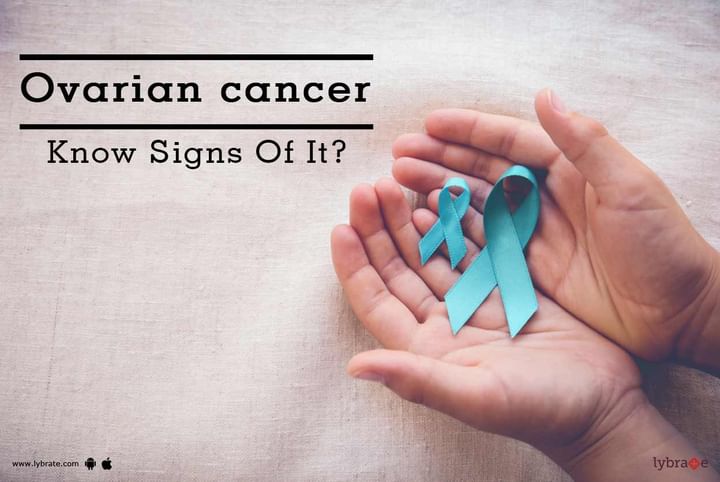Ovarian cancer - Know Signs Of It!
Amongst the different types of gynecological cancers prevalent today, ovarian cancer is associated with the highest rate of fatality. This type of cancer refers to tumours that grow in the ovaries. In most cases, these develop on the outer lining or epithelium of the ovary. Though this type of cancer is difficult to treat in its later stages, if diagnosed early enough it can be easily managed.
In the early stages of ovarian cancer, very few symptoms may be present. Many women do not experience any symptoms at all. The symptoms that may be experienced can be associated with other conditions and hence often go unrecognized. However, in the case of ovarian cancer, these symptoms will gradually increase and worsen with time.
Some of the early symptoms of ovarian cancer could include:
- Pain in the lower stomach or pelvic area
- Back aches
- Indigestion
- Frequent urge to urinate
- Painful intercourse
- Change in bowel habits
- Nausea
- Weight loss
- Fatigue
- Loss of appetite or feeling full without eating too much
Ovarian cancer usually affects women over the age of 65. Women with a family history of breast cancer or ovarian cancer have a higher risk of developing these tumours. Endometriosis and hormone replacement therapy could also increase one’s risk of ovarian cancer.
As with other types of cancer, treatment for ovarian cancer depends largely on how far it has advanced. The main forms of treatment include surgery, chemotherapy and radiation. Surgery is usually the first step of treating ovarian cancer. This involves a partial or complete hysterectomy. In the former, only one ovary and the adjoining fallopian tube is removed while in the latter both ovaries, fallopian tubes and the uterus are removed. The lymph nodes around the reproductive system and the fatty tissue in the abdomen may also be removed. A woman can conceive a child after a partial hysterectomy. In cases of advanced ovarian cancer, surgery may also include removing cancerous cells from the urinary system, intestines and spleen.
Surgery is usually followed by chemotherapy, medication for targeted therapy or hormone therapy. Radiation is rarely used to treat ovarian cancer. In addition, many patients also require counselling to cope with body change issues and the loss of sexual desire. Ovarian cancer can recur and hence it is also important to get regularly screened for any signs of recurrent tumours. In cases of recurrent cancer, chemotherapy is the most preferred form of treatment.



+1.svg)
